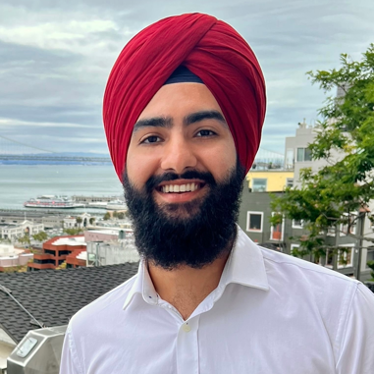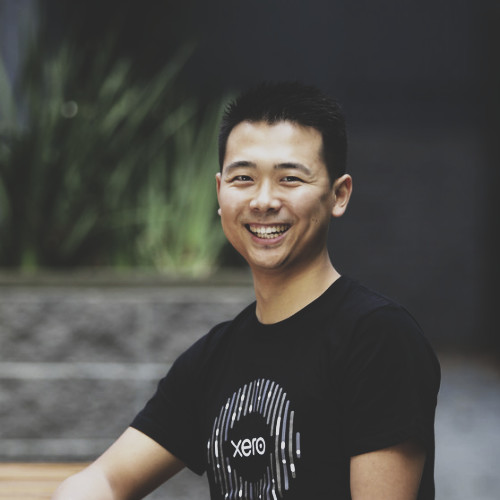


Paris, France



FIL Paris will take place from July 15-21 and includes ecosystem events across the stunning city. Hosted by the Filecoin Foundation, The FIL Paris Network Base is your hub for daily lightning talks, workshops, and coworking - and the best place to pick up Filecoin swag, Corgis and an exclusive POAP!


Juan is the founder of Protocol Labs, a research, development, and deployment lab. He created IPFS, a decentralized web protocol, and Filecoin, a decentralized storage network. He is obsessed with knowledge, science, and technology.

Molly Mackinlay leads Engineering and Research Development at Protocol Labs via the PL EngRes WG - including OSS stewardship across IPFS, Filecoin, and libp2p; designing and managing new breakthroughs like the Filecoin Virtual Machine (FVM); and helping launch new networks like Saturn (web3 CDN) and IPC (L2 subnets). Molly also created PL Launchpad, a four-week learning intensive program designed to train, develop, and connect technical talent with collaborators and web3 knowledge across the Protocol Labs Network (PLN).

Clara Tsao is the founding director of Filecoin Foundation and Filecoin Foundation for the Decentralized Web. She is also co-founder and on the board of the Trust & Safety Professional Association and the Trust & Safety Foundation. Clara previously was the Senior Advisor for Emerging Technology (IoT and Blockchain) at the Department of Homeland Security and a Chief Technology Officer focused on countering foreign influence, election security, and homegrown extremism. She has spent a decade working in the technology industry across global teams at Microsoft, Apple, Sony PlayStation, AT&T, and also as a Google and Mozilla Technology Policy Fellow. Clara is also the Board Chair and President of the White House Presidential Innovation Fellows Foundation and a Senior Advisor at Tech Against Terrorism.

Megan Klimen is the co-founding officer of Filecoin Foundation and Filecoin Foundation for the Decentralized Web. Previously, she was co-founder and Chief Operating Officer of 3Scan, a biotech startup that developed 3D robotic serial sectioning microscopes, with the mission of enabling big data analysis of human tissue for applications including clinical diagnostics, drug discovery, 3D organ printing, and brain mapping. In addition, Megan co-ran an open data project in Jalalabad, Afghanistan, that organized and made available academic and military research, co-organized the open-source “BIL” Conference, and is a founding member of Women in Hardware.

Computer Engineer with years of experience in delivering software projects. Currently leading growth and web3 projects at Zondax and building beryx.io Passionate about making it easier for new developers and people new to web3 to get started.

Akaki has a Ph.D. in theoretical computer science from ETH Zurich. After graduation, he worked as a postdoc and then senior researcher in microeconomics at ETH Zurich. Recently, he joined Offchain Labs as a research scientist, where he works on optimization and design of rollup protocols.

Better known to the developer community as DeveloperAlly, Alison (Ally) Haire is a seasoned Developer Evangelist with a robust background in enterprise and research software. Currently, she serves as a Developer Relations Engineer at the Filecoin Foundation, where she contributes extensively to the distributed storage and compute space.

Andrew leads client growth for Protocol Labs. Previously Andrew launched Roku's OS licensing business, breaking Roku into Europe, Asia, Africa, and Australia through licensing agreements with major media brands including Sky, Telstra, Globe, Comcast, and DirecTV. Andrew jumped into web3 as part of the leadership team at GIANT Protocol where they turned bandwidth into a tokenized asset, unlocking value in bandwidth as a durable, tradable store of value. When he's not working on the decentralized web, you can find him hiking in the wilderness of the mountains, sailing through the desolation of the sea, or doing arts & crafts with his two daughters Andrew holds a degree in computer science and digital electronics from Dartmouth College.


Barnabé Monnot is a research scientist at the Robust Incentives Group, a research team of the Ethereum Foundation studying cryptoeconomics and mechanism design for the Ethereum Protocol.

An open web enabler, decentralization-as-a-mission. Co-founder of Blockless, Ex-COO at Wabi, UC Berkeley (B.S.), and Wharton (MBA)
Christian is currently data products at Ocean Protocol



Donal is the Head of People at Protocol Labs, leading a team of people experts who support both Protocol Labs itself and broader Protocol Labs network of companies. Donal has been leading People teams and initiatives for over 12 years with a specific focus on emerging and scaling tech organisations. Donal previously led the People function at the Polkadot network, having previously worked across many orgs in Web2, most notably Electronic Arts where he spent 5 years leading People and Talent programs.

Gabe Pohl-Zaretsky is the team lead running Gauntlet's Applied Research team. Since 2020, Gabe has worked at Gauntlet providing expert quantitative modeling and advisory to top DeFi protocols such as Uniswap, Immutable, Sushiswap, Ref Finance, Notional Finance, and Apeswap into the impacts of incentive spend and how to properly manage a DeFi growth program. Before Gauntlet, Gabe got his start in crypto and finance at Jane Street, Global Trading Systems, and the U.S. Securities and Exchange Commission.

Repeat founder, 1 exit, ex CIO at cybersec vendor Wallix (ALLIX.PA), Past member of W3C, OWASP, O’Reilly author, Award winning open source dev, PhD CS

Cofounder of DCENT - a web3 focused datacenter and one of Europe's top Storage Providers. Hidde has a deep understanding of the industry and is an expert in Filecoin. He possess significant expertise in sales and hardware as my primary professional background.

Ian Brunner serves as the Head of Talent at Protocol Labs, overseeing a dedicated team that excels in driving the growth and expansion of more than 60 companies within the dynamic web3 domain. Prior to Protocol Labs, Ian previously spearheaded recruitment initiatives and played a pivotal role in acquiring top-tier talent for industry giants such as Facebook and Centro.

12+ yrs in software (PM, UX), ex Head of UX at Mirakl, global leader in e-commerce marketplace software, O’Reilly author

Working in the technology industry for +8 years, James is now the Lead Account Manager and Businesses Development Specialist for all things Web3 at the global IaaS provider servers.com

Janis is building and managing CV Labs’ global Accelerator and leading the development of CV Labs` expansion to Germany. Before joining CV Labs, Janis worked in various start-ups across the globe and started two of his own ventures. He holds an MSC in Organizational Innovation and Entrepreneurship from the Copenhagen Business School. In his free time, Janis is passionate about everything Blockchain-related, football, and exploring the planet Earth.

Polyglot engineer interested in pushing data to Filecoin, novel & applied cryptography, distributed consensus, quantum computing, kittens, running with a torn meniscus

Jesper is a distinguished scholar with numerous Master's degrees and a PhD in Applied Physics and Computer Science from Cornell. His career path traverses a broad spectrum from industry research & development and software engineering to quantitative finance and startup incubation. Despite 2022's bear market onset, Jesper co-founded and currently manages Panoptic (panoptic.xyz), securing $4.5M in funding from notable investors like gumi Cryptos, Uniswap Ventures, and Coinbase Ventures. Alongside co-founder, Professor Guillaume Lambert of Cornell, they developed Panoptic, a groundbreaking DeFi options protocol on Uniswap, that's captivated the Web3 community and gained substantial media attention. Notably, Panoptic recently secured a spot on Fast Company's list of World Changing Ideas, highlighting its transformative potential."

Maria is a Research Data Scientist at Protocol Labs’ CryptoEconLab, where she works closely with various teams to help them design and model decentralized economies. Her interests include time-series data mining, network science, and applications of data science to finance and economics. She previously worked in the fraud detection and cyber crime spaces. She holds a Ph.D. in Information Management, where she used high-frequency telematics data to extract information about driving behavior.

Prior to leading partnerships and growth at Tableland, Marla worked with Fortune 500 brands to drive adoption of media technology at Snapchat, Verizon Media, Microsoft and others. Marla’s been recognized for her contributions to the digital industry via several global award organizations including the Cannes Lions, Marketing Magazine (Canada) and Mobile Marketer.
Computer Scientist and Former Head of Derivatives Structuring at HSBC with over 17 years of experience in traditional finance. Member of Trusted Web (Web3) Council in the Cabinet Secretariat of Japan.

Matheus Venturyne Xavier Ferreira is a Postdoctoral Fellow in Computer Science at Harvard John A. Paulson School of Engineering and Applied Sciences. He earned his PhD (2022) and MA (2018) in Computer Science from Princeton University and his BS in Computer Engineering (2016) from the Federal University of Itajubá. His research interests include AI, Algorithmic Economics and Security. He applies artificial intelligence, optimization and theoretical computer science tools to create secure, transparent, and auditable platforms.

Paul Sengh is the co-founder of OpenBlock Labs, a platform that helps decentralized organizations build data-driven incentive mechanisms to cost-effectively source liquidity, users, and network participation. Before Delta One, Paul was a machine learning researcher at Stanford University, and studied CS at Carnegie Mellon University.

Tim, CEO of Mailchain, has been a blockchain pioneer since 2017. Focusing on evolving online communication, he worked on various blockchain implementations before Mailchain. Prior to that, he established the Emerging Tech business at AWS Startups.


A Mechanical Engineer turned programmer with a love for helping others learn programming.


Please note: the Network Base venue will not be open July 15–17 and 21
Boost your productivity with our professional workspace, complete with high-speed internet, comfortable seating, amazing Parisian views and complimentary coffee and snacks. Meet the Filecoin team and learn the latest with our network!
This talk introduces Filecoin Data Tools(FDT). It encapsulates a modern, streamlined, composable toolkit for data preparation, hot retrieval, and Filecoin deal making.
Filecoin is on the verge of transforming how the internet works, ensuring that our data is stored more safely, and more cost effectively than with current generation of monolithic public clouds. To speed up global adoption of decentralized storage, Protocol Labs has partnered with leading Infrastructure as a Service provider servers.com to reduce the barriers to entry for anyone wishing to join the storage revolution. Come and learn how we can get you started on your own Storage Provider journey!
DCENT explores the transformative impact of efficient computing systems, solar and battery technologies, and cost optimization strategies. Discover how forward-thinking providers embrace renewability to drive down power costs and pave the way for a sustainable future.
Learn about the ecosystem's progress preserving humanity's most important data. In this session you'll get a better understanding of the data sets, use cases, companies, industries, and geographies onboarding data onto Filecoin and the various tools and services in the ecosystem that are driving that growth. Whether you're a storage provider, developer, or client, this talk will equip you with a global view of the ecosystem's progress preserving humanity's most important information.
Join us at the FIL Paris Network Base and watch the livestream of Filecoin Unleashed, the ultimate event showcasing how Filecoin revolutionizes data storage and unlocks the open data economy.
The Launchpad Social is a unique opportunity to create meaningful connections within the Protocol Labs Network. Embark on a floating location to experience a live pitch showcasing products & people tied to our ecosystem, and engage with current & past Launchpad participants, network companies & thought leaders in web3. Register here: https://lu.ma/x54iexbq
Boost your productivity with our professional workspace, complete with high-speed internet, comfortable seating, amazing Parisian views and complimentary coffee and snacks. Meet the Filecoin team and learn the latest with our network!
CryptoEconDay is a gathering of Web3 researchers and practitioners sharing findings, lessons learned, and answering some of our most challenging questions around the topic of cryptoeconomics. Register here: https://lu.ma/cedparis
Our recent paper written by RIG members and collaborators exhibits the issue of timing games. Consensus participants in decentralised economic systems often find themselves in a privileged position, as block producers. In particular, Proof-of-Stake systems typically sample a block proposer at random and provide them with a slot where they are expected to propose a block. Delaying as late as possible the release of the block maximises rewards to the producer, since they accumulate more fees and MEV in the meantime. Does this incentive lead to a slippery slope where everyone is late? In France, this is known as "quart d'heure de politesse" ("polite 15 minutes"), where everyone expects everyone else to be late, and adjusts their behaviour as a result. It is fitting to discuss this issue in the Paris edition of CryptoEconDay!
In this talk, we discuss a recent collaboration between Qredo and CryptoEconLab to update Qredo's tokenomics. In particular, we provide an analysis of how Qredo's custody network functions and detail some of the changes related to tokenomics that are expected to occur in the medium to short term. We also discuss how we modeled Qredo's economy to tune and test a few key economic parameters to guarantee the growth and sustainability of the entire Qredo.
Trading on decentralized exchanges has been one of the primary use cases for permissionless blockchains with daily trading volume exceeding billions of U.S.~dollars. In the status quo, users broadcast transactions and miners are responsible for composing a block of transactions and picking an execution ordering -- the order in which transactions execute in the exchange. Due to the lack of a regulatory framework, it is common to observe miners exploiting their privileged position by front-running transactions and obtaining risk-fee profits. In this work, we propose to modify the interaction between miners and users and initiate the study of {\em verifiable sequencing rules}. As in the status quo, miners can determine the content of a block; however, they commit to respecting a sequencing rule that constrains the execution ordering and is verifiable (there is a polynomial time algorithm that can verify if the execution ordering satisfies such constraints). Thus in the event a miner deviates from the sequencing rule, anyone can generate a proof of non-compliance. We ask if there are sequencing rules that limit price manipulation from miners in a two-token liquidity pool exchange. Our first result is an impossibility theorem: for any sequencing rule, there is an instance of user transactions where the miner can obtain non-zero risk-free profits. In light of this impossibility result, our main result is a verifiable sequencing rule that provides execution price guarantees for users. In particular, for any user transaction A, it ensures that either (1) the execution price of A is at least as good as if A was the only transaction in the block, or (2) the execution price of A is worse than this ``standalone'' price and the miner does not gain (or lose) when including A in the block.
In this talk, the speaker discusses the challenges of optimizing cryptoeconomic incentives for DAOs. The speaker introduces two frameworks for incentivizing participants in DAOs: objective-based and performance-driven frameworks. The speaker also introduces the principal-agent model, which describes the relationship between the DAO (the principal) and its participants (the agents). Finally, the speaker discusses the potential of reinforcement learning (RL) as a methodology of optimization.
In this talk, we delve into the rapidly evolving world of Decentralized Finance (DeFi) and the transformative potential of perpetual options powered by Automated Market Makers (AMMs). We'll explore the underlying mechanisms that drive these automated entities, their role in creating efficient, decentralized markets, and their unique influence on the development of perpetual options. Prepare for an insightful discussion that will shed light on the innovative intersections between DeFi, perpetual options, and AMMs, illuminating the future trajectory of the financial landscape.
An quantitative retrospective into the impact liquidity mining has had on DeFi with discussion on how to improve the effectiveness of these types of programs.
ZX Zhang - CryptoEconLab Team Lead; David Sneider - Founder, Lit Protocol; Jacob Greene - Head of Research, API3; Kris Paruch - Founder, Token Engineering Labs. Discussion on the economics of key infrastructure powering crypto i.e. RPC providers, nodes, oracles, cloud providers etc. How will this evolve over time? What are the pros and cons to different mechanism designs?
Filecoin has been at the center of massive innovation this year, with the deployment of the Filecoin Virtual Machine (FVM), and Interplanetary Consensus (IPC). Axel will explore the ways in which deploying these new computing capabilities and scaling technology could lead to negative economic externalities for the network, and what crypto economic mechanisms could be implemented to ensure these have an overall positive impact.
We will review the Ethereum settlement layer stack (or MEV supply chain) in today's post-Merge world, through data and metrics. Using onchain data and mev-boost Relay's open data API, we can lay out the market structure across builders & relays, and the block bidding economics.
We study a problem of dynamic resource pricing, where resource has multiple dimensions. One particular example is a new proposal, EIP-4844, which allows a parallel market for specific data storage for rollup protocols on the base layer. We study efficient strategies of calldata posting for these protocols, depending on their usage levels and delay costs.
Extend the conversation, unwind, and raise a glass at Filecoin and Friends happy hour, where good company and great drinks await!
Boost your productivity with our professional workspace, complete with high-speed internet, comfortable seating, amazing Parisian views and complimentary coffee and snacks. Meet the Filecoin team and learn the latest with our network!
It's Builders' Day at the Filecoin Network Base -- a chance to celebrate the amazing projects in development across the Filecoin ecosystem. Join us on the River Seine, take advantage of the views, and dive into an afternoon of talks with organizations successfully building on the Filecoin network. Representatives from Protocol Labs, the Filecoin Virtual Machine, developers and more will be on site to share their achievements and show you how to get started. We're closing out with a keynote from Juan Benet, founder and CEO of Protocol Labs.
From hackathons, to dev grants, to global Storage Provider events, the Filecoin Foundation provides hands-on support at every stage of your journey into the Filecoin network. Join FF co-founding directors, Megan Klimen and Clara Tsao, to learn what resources are available to developers and Storage Providers and how to get started.
A basic run-through of programming on the FVM, including tools and starter kits to help get developers up and running.
We explore the key benefits achieved by filecoin users tokenizing their datasets with Ocean Protocol data NFTs.
FEVM developers can use Mailchain to add communication to dapps, helping use cases including secure file sharing, token-based link distribution/access & on/offchain notifications. See a live demo & learn how to use Mailchain's SDK to communicate.
Explore the practical and aspirational possibilities of open data ecosystems that promote data liquidity. Take a look at real world use cases unlocked by combining decentralized storage technology (Filecoin/FVM) with decentralized database infrastructure (Tableland), consider hypotheses about drivers of mass adoption, and explore new ways to unlock value through data.
Verifiable, truly internet-scale distributed compute networks are necessary for the next stage of web3 development. A lot of discussion has gone into friendlier UX & scaling blockchain over the past year, culminating in account abstraction & ZK proofs. However, the next frontier for computing is really at the data layer - to build truly decentralised applications that can run at internet scale requires more efficient off-chain computation (that isn’t a centralised backend!). This opens up the door to so many opportunities unavailable in the web2 world including ML DAOs, decentralised AI, DeSci & applications that take advantage of both the features of blockchain and the the power of distributed compute (eg. Waterlily.ai)
What if we could access smart contracts from anywhere, on any web page? In this talk, we'll discuss the challenges in Web3-native frontend development, fragmented client-side computations, and clunky user experiences. We'll also introduce a new approach to building embeddable transactional interfaces.
"Life is just complex simplicity. Thug it out" - Teedra Moses, Complex Simplicity, 2004. We will explore the history of the internet and the prospect of decentralized dynamic frontends, before getting into why building complex decentralized systems just doesn’t have to be so damn complicated.
Explore the untapped potential of Filecoin development by leveraging the FVM in conjunction with Beryx. We discuss the challenges of dealing with historical data and share our journey in developing tools for simplifying web3 development. We dive into data streams to uncover valuable insights, contracts, and tools that facilitate fast building in this dynamic field.
Web3 Entrepreneurs always seek the right place to build their project. This can be in the form of a Blockchain Ecosystem or the form of a set jurisdiction. But what are the crucial factors in determining where to start? And what does it take to be successful and leap from being an idea to a fundable startup?
The Recruiting and People Teams at PL are offering PL Network Members solutions at each stage of the talent journey. From attraction to retention and everything in between, we have you covered!
Explores the Filecoin ecosystem growth, implications of flexible lending, liquid staking strategies, and fixed-term lending. Discusses the convergence of DeFi and TradFi, global DeFi trends, regulatory insights, the impact of Filecoin’s listing in Japan, and Secured Finance’s journey from a test pilot to a defined roadmap.
After all the great sessions, stick around to say that you've partied on the Siene. Filecoin Orbit along with Kryptosphere present our closing event with live entertainment, food, drink and fun.
























